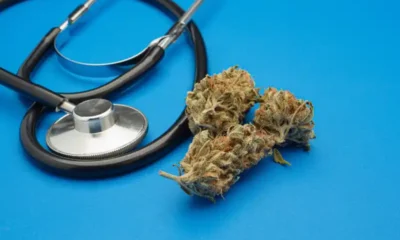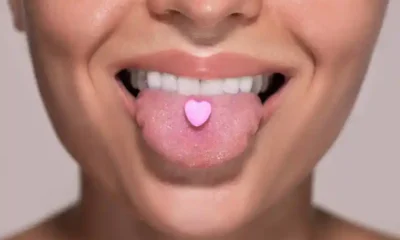Connect with us
Published
5 months agoon

As New York’s adult-use cannabis industry continues to take shape, the state is now cracking down on hemp-derived cannabinoids after introducing new rules earlier in the year.
Namely, the Empire State’s Cannabis Control Board (CCB) has approved updated regulations on hemp-derived cannabinoid products, largely targeting THC and other similar psychotropic compounds, according to a Syracuse.com report. The updated rules also come in the face of an ongoing lawsuit, in which a judge prohibited regulators from enforcing new limits.
During a vote on Nov. 17, board members approved the new rules, which were first published in July. They were subject to an injunction, after businesses selling the newly banned products sued in Albany Supreme Court shortly after.
The regulations deem that hemp products including THC must have a CBD-THC ratio of at least 15:1 with a maximum of 10 mg of THC per package. Edible hemp products can only contain 1 mg of THC per serving, and the rules also ban intoxicating hemp-derived cannabinoids including delta-8 THC, THC-A and THC-O.
“You’re not just affecting me… you’re affecting everyone that has access to these products,” said Hustle + Flo Founder Jamie Galvis. The Brooklyn-based wellness brand primarily sells full-spectrum CBD products. “I don’t know what to do here, I’m at a loss.”
Plaintiffs in court — including North Fork Distribution, Inc. (Cycling Frog); Sarene Craft Beer Distributors, LLC; Hemp Beverage Alliance, Inc.; One Stop Brew Shop, LLC — said that the new regulations violate the state’s Marihuana Regulation and Taxation Act, in that the CCB acted in an “arbitrary and capricious” manner by approving the rules. The plaintiffs said that the CCB failed to identify the “emergency” that prompted the swift rule change.
Less than a week after the CCB passed the new regulations on Nov. 13, New York Supreme Court Judge Thomas Marcelle issued an injunction to prevent regulators from enforcing the emergency regulations. Marcelle said that the Office of Cannabis Management (OCM) did not have proper justification for implementing the new rules after speaking with two other judges. In his decision, Marcelle also appeared to recognize that the regulations were largely imposed for business concerns, rather than tackling health-related issues.
Companies that sell hemp-derived cannabinoids don’t have to pay the same high regulatory costs and taxes that cannabis companies are required to, and hemp companies can also sell across state lines.
“Plaintiffs posit that respondents adopted the Emergency Regulations not for public health motives, but to protect and advantage New York cannabis vendors — which has the altogether pleasant externality of enhancing tax revenue,” Marcelle wrote in the decision. “Respondents are less than bashful about this. They admit that petitioners’ intoxicating cannabinoid hemp products undermine the adult-use market, which they license.”
Joshua Bauchner, chair of the cannabis and psychedelics group at Mandelbaum Barrett PC, told NY Cannabis Insider that, despite the court injunction, the OCM can likely enforce the rules, though he added that hemp companies will likely challenge the regulations, since the government is banning a lawful product and businesses selling it.
“I think there’s gonna be a lot of constitutional challenges to what the state’s trying to do here, and it just smacks of government overreach,” Bauchner said.
The new rules will be effective upon publication in the State Register.
The CCB also approved new fees for cannabis testing laboratories during the meeting — either 1% of the lab’s gross revenue or $1,000, whichever is greater — along with approving registration renewals for nine of New York’s 11 medical cannabis companies.
OCM Director of Policy John Kagia also gave an update on legal cannabis sales, announcing that retailers had sold just under $109 million worth of legal cannabis products to date; the fourth quarter so far had tallied $23 million in sales.


Carmelo Anthony Launches Cannabis Brand


Santa Barbara County Approves Study To Address Ongoing Cannabis Odor


Kansas Medical Cannabis Proposal Dead for 2024


Psychedelic Research Proves Rather Tricky for the FDA


Psychedelic Drug Market Poised to Hit $4.6B by 2030


Chronic Pot Use Has Minimal Effect on Motivation, Study Shows
